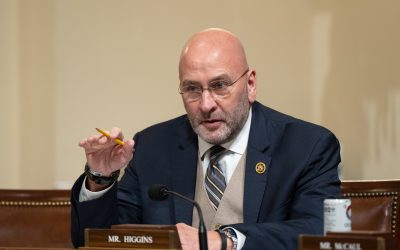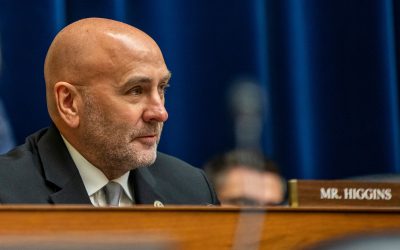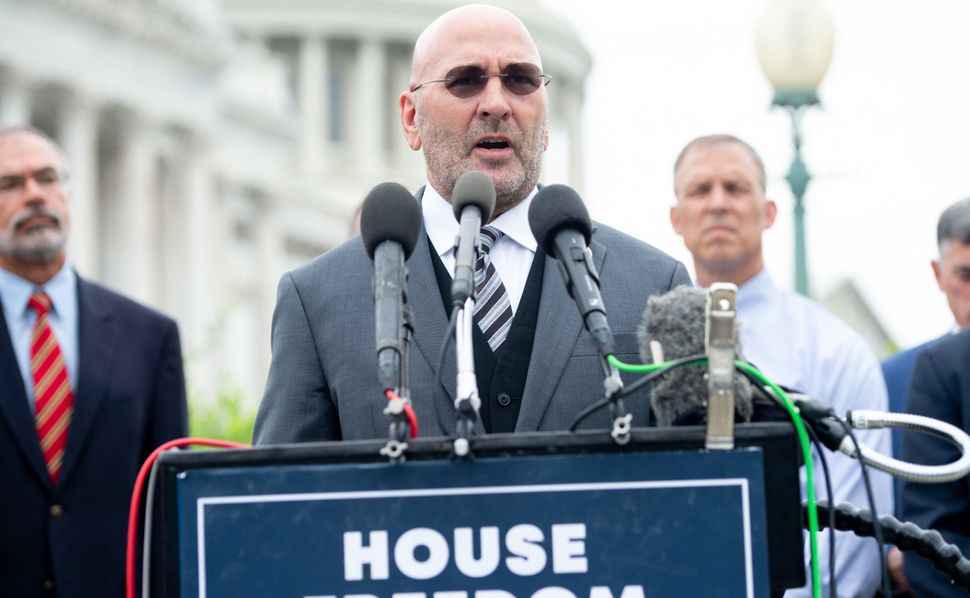Given the rate at which oil prices have risen over the last year, economic theory tells us that Louisiana’s oil and gas industry should be rising as well. However, this has not been the case. Other energy-producing states like Texas are booming, while oilfield jobs and field service companies in Louisiana continue to struggle as a result of our state’s toxic legal and business climate.
Louisiana lost more than 20,000 jobs during the recent oil and gas downturn and few of those jobs have returned. Anti-growth policies like high severance taxes and legacy lawsuits are injuring Louisiana’s ability to attract new investment in the oil and gas industry. Policies pushed by Baton Rouge are driving away new projects and potential investors. Oil & Gas industry investment is encouraged right next door in Texas. Louisiana can do much better. The executive in Texas is performing for the citizens of Texas, the environment there encourages business and invites oil & gas investment. The Louisiana Executive has chosen to stand against the Oil & Gas industry, and the citizens of Louisiana suffer as a result.
We’re doing everything in our power at the federal level to create a competitive business climate. President Trump and the Republican Congress have taken historic action to repeal burdensome regulations, lower corporate tax rates, and prioritize American energy producers. The oil export ban has been lifted, we’re seeking new global export markets for U.S. energy commodities, and my office has pushed discussions with the executive branch to lower or waive the federal royalty rate for offshore drilling operations. But those policies only work if our state becomes a willing partner.
Louisiana has the highest tax burden in our region for the extraction of crude oil, 12.5%. For comparison, our largest competitor, Texas, levies a severance tax rate that is almost three times lower at 4.6%. Couple that with Baton Rouge’s well-established insistence on raising taxes and our Governor’s constant battle against Louisiana conservatives, and it’s easy to understand why oil investors are choosing to expand operations outside of Louisiana. However, Louisiana’s Executive policies and injurious tax burdens represent only part of the problem.
Even more troubling is the toxic legal environment that has been encouraged to manifest here in Louisiana. There is an ideological war being waged against private industry in Louisiana.
Environmental activist extremists, many trial lawyers, and some politicians pursue their sometimes insidious goals, driven in most cases by ideological hatred for America’s energy industry. The reality is that this legal environment is costing thousands of Louisiana jobs and countless millions in new investments. How can we honestly ask private industry to come to Louisiana, while knowing they face costly legal battles just to get their projects off the ground? Louisiana can do better. We must do better.
We’ve seen project after project fall victim to this environment, with the Bayou Bridge Pipeline serving as 2018’s prime example. This is $750 million investment, producing thousands of jobs and connecting refineries across South Louisiana. Before construction started, every necessary environmental review was conducted, and every required permit was secured. This project was squared away, as by-the-books as it gets. Yet, legal battles have halted construction of the pipeline on multiple occasions, costing the project nearly $1 million for every day that workers stand idle. Though the Bayou Bridge Pipeline continues to move forward, it’s situations like this that potential investors are watching closely.
As a state, we must ask ourselves what message we’re delivering to potential investors and how we can best attract new growth. We have set a model at the federal level with historic tax and regulatory reform, and the state should follow our lead. Echoing these pro-growth, America first policies at the state level is the necessary action to return oil and gas jobs to Louisiana.
—
Congressman Clay Higgins represents Louisiana’s 3rd District in the United States House of Representatives.
Op-ed for the Louisiana Oil & Gas Association’s Industry Report



